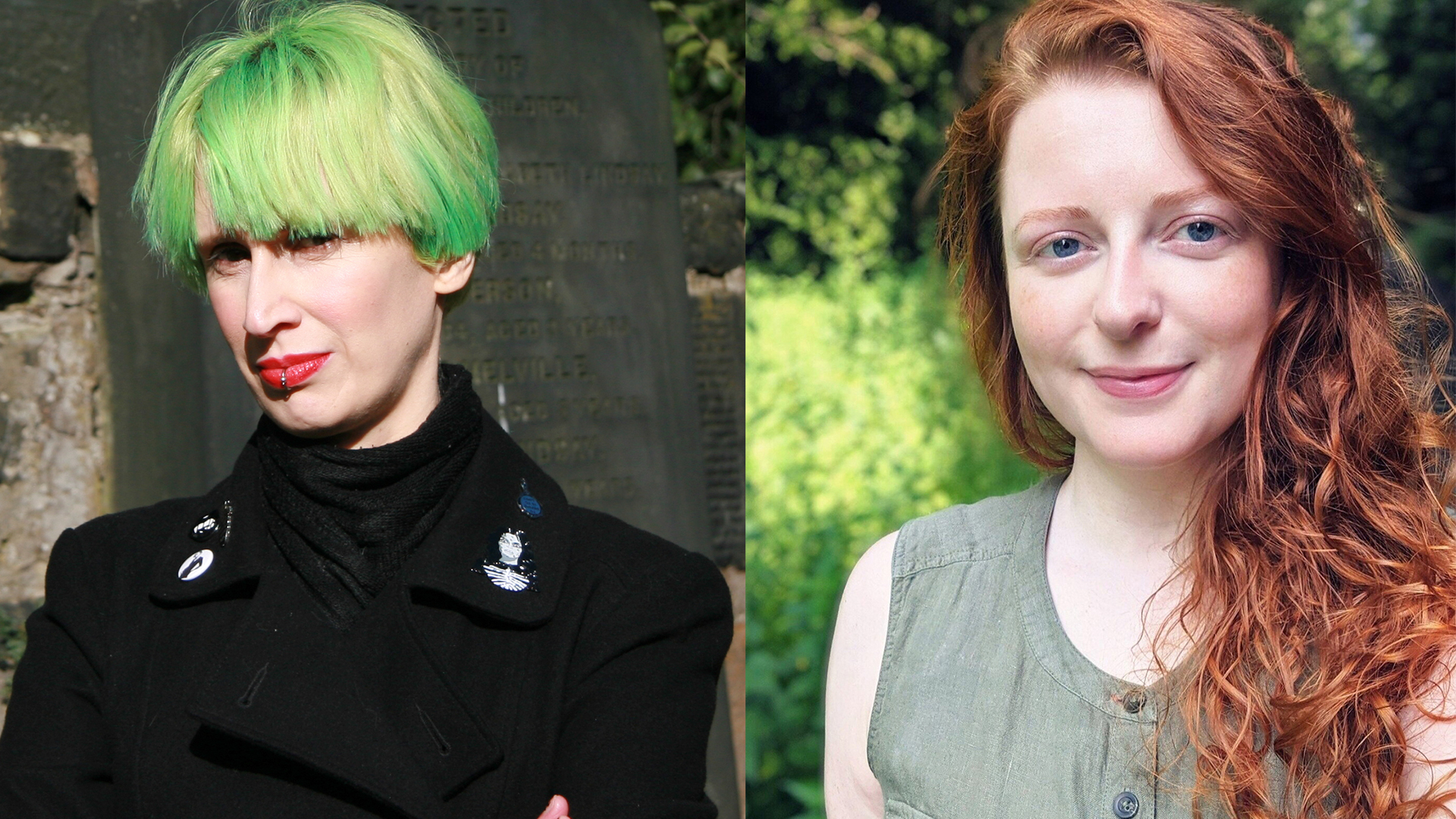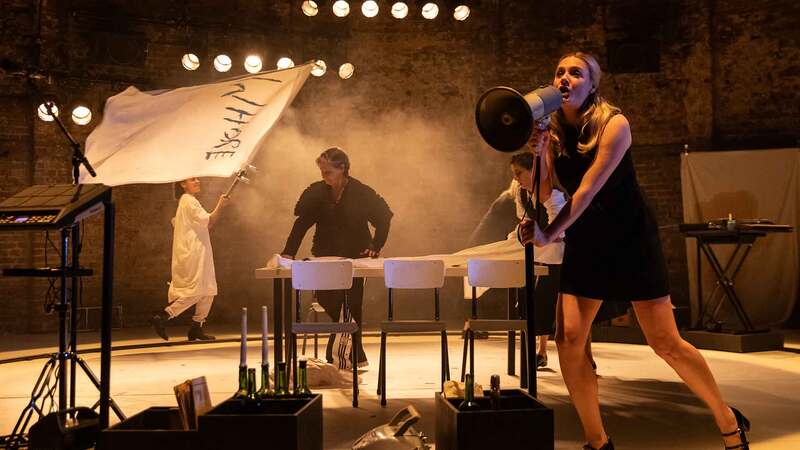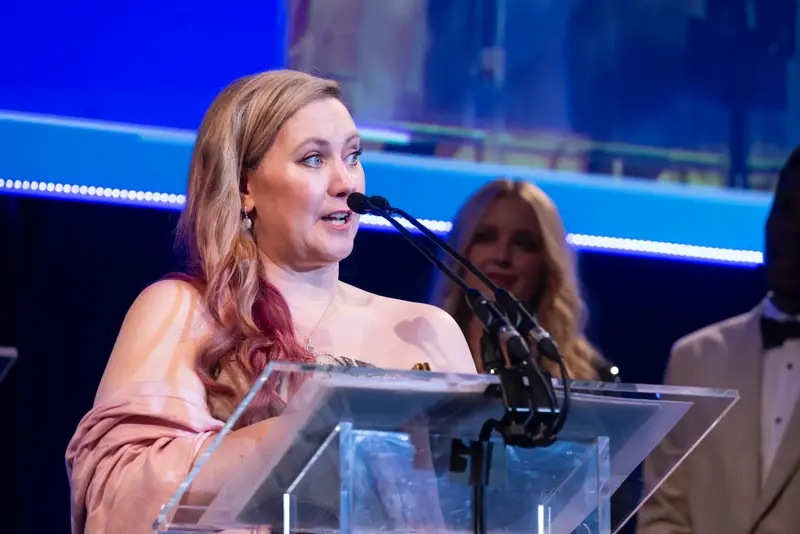The Inklusion Guide launches to help organisations improve accessibility
The Inklusion access guide for UK literary sector organisations launched with a panel event at Edinburgh International Book Festival on 25th August. Its creators, disabled writers Ever Dundas and Julie Farrell, talk to The Bookseller about working on it, and their hopes that it will raise awareness about disability within the industry and combat the lack of access and constant need to self-advocate.
What inspired you to launch the Inklusion Guide?
Ever Dundas (ED): Julie and I had a similar experience in the publishing industry in terms of lack of access. Since my début novel came out in 2017, I was having to constantly advocate for myself when it came to event access, which was exhausting. It felt quite lonely as well, because there wasn’t much chat about disability within the publishing industry that I was aware of. We just got so frustrated by the lack of access, the patchy access, having to constantly advocate. We both independently had this idea of doing a guide to try and bring some consistency, make a noise about it and implement access.
Julie Farrell (JF): Luckily, we didn’t know how much of a challenge it would be at the time, so we were full of gusto. I come at it from working within publishing as well as being a writer. I had been in PR and events and marketing, seeing that people with my abilities, or lack thereof, didn’t really fit. And then, I had a big breakdown in my health five years ago… which really compounded that drive to want to change things for the better. We decided in November 2019 that we would start this from January 2021—we knew that was when we could set time aside. And then, the pandemic happened and it made access the buzzword of the industry.
The messages from the disabled community are not accusatory. They’re simply saying: “This is my lived experience, please acknowledge me and do what you can to include me in our world.”
What impact did the pandemic have?
ED: [It] changed the whole landscape of access.
JF: What we found was that, by 2021, we had had a year of the pandemic and when we announced [the guide], there was a pile-on. I think the pandemic made people really invested in accessibility. Even though we are going back to normal now—which we hate, obviously, and we encourage people not to think that way—people like Edinburgh International Book Festival are saying: “It’s hybrid from now on.” There are people who are really committed to taking this forward, which is the best thing that we can ask for.
What feedback have you had from other disabled people in the industry?
ED: We have already seen a lot of positive things. A lot of disabled authors were having to self-advocate and sometimes they were struggling. We would send a link to our website with the basic information about what we were going to do, and even just having that made a huge difference. A lot of disabled people in our networks are really excited about it coming out, because it does take the onus off them a bit, [which] is such a big part of this. We are really pleased that that’s already happening.
How did you go about putting the guide together?
ED: What was important to us was that our guide was quite specific to the literature sector—although it can definitely be used more widely. So it covers things like writing residencies and fellowships and prizes. We researched existing guides and fed that in. We also did a questionnaire with various literary organisations across the industry, asking about what kind of access they provide or what they are struggling with, so that informed the guide as well. Also, it was important to us to get paid disabled consultants on board. We interviewed 10 disabled authors about their experiences of events and access and got some really brilliant feedback. As well as using that as input into our guide as a practical checklist of things that organisations can implement, we have quotes throughout the guide that show a mixture of their experiences of bad and good access, and what a difference that made. I think that just makes it all the more impactful.
JF: We collaborated with Cat Mitchell, lecturer in writing and publishing at the University of Derby, who had conducted research into the experiences of disabled people in publishing. Within the guide we look at disability and race, we have a digital poverty spotlight, and we look at the purple pound, the value that is within the disabled population, which is £294bn. We also worked on ideas for alternate means to raise money in terms of access. We are trying to come at it from every angle. Something that we should keep in mind when we look at this guide is that the messages from the disabled community are not accusatory. They are simply saying: “This is my lived experience, please acknowledge me and do what you can to include me in our world.”
You’re partnering with Penguin Random House on the design and production of the guide. How did the publisher become involved?
ED: We were putting together emails to various big publishers and organisations to ask if they would support us. I was just on the verge of emailing PRH when Siena [Parker, PRH’s social impact director] actually got in touch with us. They have been really supportive from the beginning, which is exciting. It’s been really great being partnered with them.
JF: We have been working with Meredith Adams, who is the social impact and sustainability manager (inclusion), and Zainab Juma, who is the brand campaign manager. They have both been very helpful and informative. They have been really good at letting us be us, but also facilitating us and getting the message out there. It started initially as a PDF guide, but we realised that there are so many people out there who are really visual in terms of absorbing information, and that we could build that into the website. So, PRH has been creating a library of digital assets that we can use on our social media and our website.
ED: There has been a slight delay with the timeline. It’s just the two of us doing this project and it’s been quite hard going. We will have the guide fully integrated into our website in time for launch, designed with accessibility and ease of navigation in mind. The PDF and the printed version, which PRH will be sending to various organisations to distribute, will be available from September.
Is there a top-line takeaway from the guide that you want to share?
ED: We don’t want organisations to think that just implementing a few top tips is enough. It’s not. It needs to be really cohesive and implemented from the very beginning in event and budget planning, not just ticking boxes.
JF: Even those that don’t have massive financial means can still make a change and make a difference. It’s not impossible.
ED: One thing that we think is really important that is usually missed out is a quiet room. Particularly for book festivals, because it can be really difficult for people with energy impairments to get through a full day or a few days at a festival.
JF: Pick up the Inklusion Guide and have it in your hand the minute that you start to plan your event, that would be my top tip!
What are your hopes for the launch of the Inklusion Guide?
ED: We need people to spread the word. It’s a free guide, so there’s no excuse to not pick it up or check out our website. We really just want organisations to have the know-how at their fingertips, so if people can just keep shouting about it and sharing it, we would really appreciate that.
What are your plans for the future of the guide?
JF: At this stage, we’re both really burnt out. It takes a lot of energy to do these things, particularly for disabled people.
ED: We plan to update the guide every two years. But Julie and I are first and foremost writers. For the past two years, we have had to put that aside [and] we want that back.
I am obviously proud of what we have done and I think it’s very important, but I am looking forward to being creative again. We also think it’s not healthy to have the two same people in charge of something like this.
We need to have different people keeping the guide going, so we are going to step back a bit. I think it will be a case of seeing if there are other people who want to take it on, or if there is an organisation who would like to provide a home for it. It’s open, at the minute.
The Inklusion Guide is available to access now via the website. A free, limited-run print booklet and downloadable PDF are scheduled for September. BSL video and audio recording, Easy Read, and Braille versions will follow.















